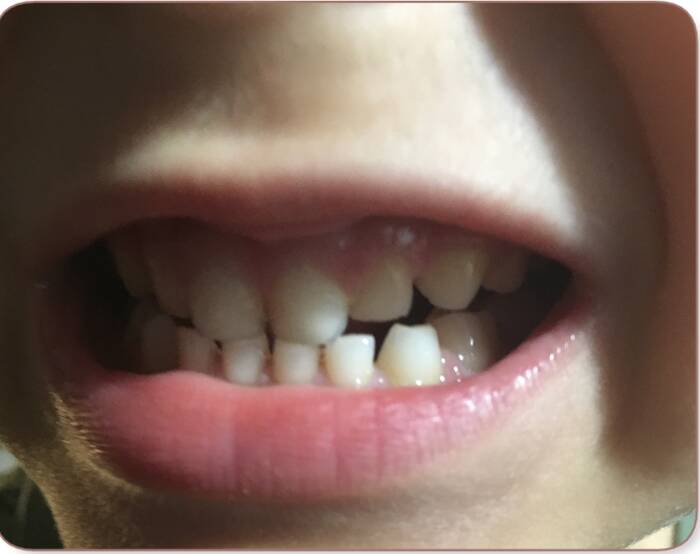Losing baby teeth early (4 years old), should we worry? Only early loss? Or a serious problem that needs to be resolved as soon as possible?
Let’s see what it is all about!
I. Brief Reminder on the Loss of Milk Teeth
Milk teeth, as they are usually called, are the temporary teeth that develop in the jaw.
They start to appear around the sixth month, but this can vary from one child to another.
These teeth are like guides, which will allow the permanent teeth to settle. The loss of baby teeth is due to the fall of the temporary teeth and the appearance of permanent teeth. When an adult tooth starts to emerge from the jaw, the baby tooth loosens and moves. Once the baby tooth falls out, the permanent tooth slowly emerges from the gums.
It is the very root of the baby teeth that will allow the adult tooth to be inserted.
The first eight teeth are usually the ones that fall out first, between the ages of 6 and 8. As for the canines and molars, it is necessary to wait between 10 and 12 years old to see them fall out.
If the child has not lost any of his or her teeth by the age of 8, it may be important to have the child see a dentist.
II. Losing Baby Teeth Early (4 Years Old), Should We Worry?
Although the usual age for losing baby teeth is between 6 and 8 years old, sometimes a child can lose teeth earlier.
It can be alarming for a parent to see their 4-year-old’s teeth just starting to move (which rarely happens). But there’s no need to worry.
The first thing to do is to reassure yourself. You need to be sure that a fall or a shock that you haven’t heard about is not responsible for this condition.
You can even take your child to a dentist for further precautions. Beyond an accident, a cavity may also have caused the “early” fall of teeth.
Once you’ve ruled out accident and decay, you just need to understand that it can happen.
Just as teeth do not grow at the same rate in children, they do not fall out at the same time. The sooner a child “sees” his or her teeth, the sooner he or she will start to lose them.
There is nothing wrong with this. The cycles are just different from one child to another.
III. How Do You Know if Your Child Still Has Baby Teeth?
There are significant differences between baby teeth and permanent teeth.
Milk teeth are initially whiter than adult teeth. However, the pulp of baby teeth is larger than that of permanent teeth.
Therefore, when a child develops a cavity, it can affect the nerve more quickly.
Compared to adult teeth, deciduous teeth also have shorter roots. That’s why they fall out easily when permanent teeth start to grow in.
In addition, adult teeth look different from baby teeth. Permanent teeth have jagged edges, which will eventually smooth out.
To find out if you still have deciduous teeth, it may be helpful to see a dentist. A panoramic x-ray of the teeth will allow the dentist to know what is going on in the mouth.
He or she will have a view of the inside of the gums, both the mandibles and the upper jaw.
IV. Milk Tooth that Does Not Fall Out, Why?
Children tend to wait with as much impatience as anxiety for the fall of their first teeth. As a kind of ritual that would make them leave the status of a child, the loss of teeth is always an event.
However, it can happen that this long-awaited loss of teeth does not happen.
Why do baby teeth not fall out? There can be several reasons for this
There may be no permanent tooth under the deciduous tooth, or the adult tooth is inserted in the gum bone. It is also possible that there is simply a delay in tooth eruption. In the latter case, you usually just have to wait.
If the baby teeth are not falling out systematically, you should start to worry.
A panoramic X-ray will help to determine the origin of the problem. If there is no permanent tooth under the deciduous tooth, a prosthesis can be placed.
If the adult tooth is embedded in the bone under the gum, then an operation can be considered. Once the tooth is pulled and repositioned, the problem will be solved.
Useful Links:
General timeline for milk tooth development

